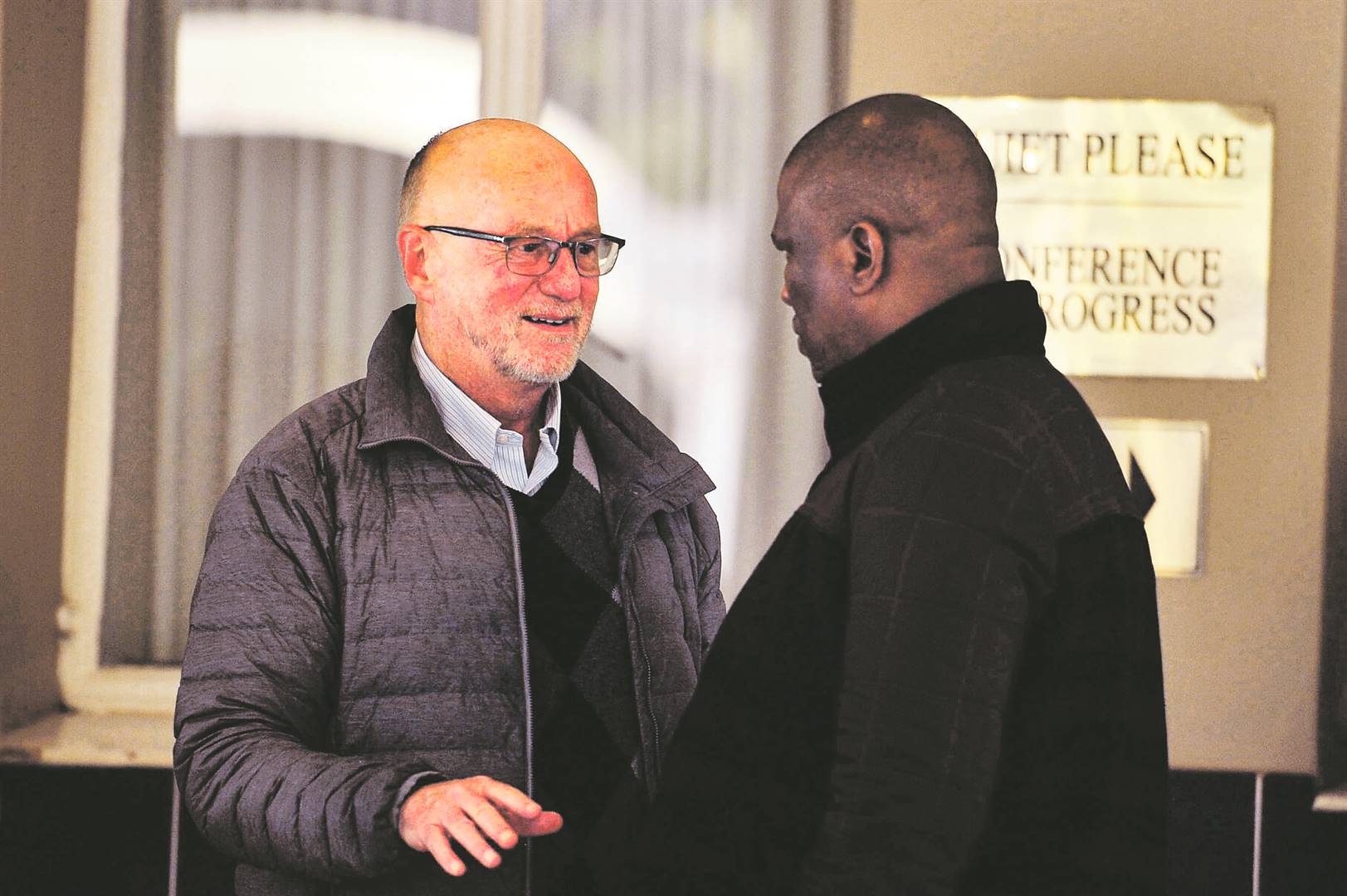
People such as Derek Hanekom, who stand up against unethical conduct, state capture and corruption, should be applauded not vilified
Some years ago, former president Kgalema Motlanthe advised the ANC to take steps to ensure that its constitution was consistent with the country’s Constitution.
This advice was not heeded.
The result is that some ANC leaders believe they have the authority to use disciplinary processes provided for in the constitution of the party to punish parliamentarians for supporting a vote of no confidence against the president.
They do not, as a matter of constitutional law. The Constitution of the country takes precedence over that of a political party.
Such a threat was recently issued to former tourism minister Derek Hanekom, a long-standing and widely respected ANC member, for conduct which he believed was required of him as a matter of conscience, as well as by the political morality of the ANC as a liberation movement.
Such conduct is constitutionally protected.
This means that in such proceedings, should they occur, members of the ANC would have an absolute defence in law.
I know that many loyal ANC members who desire to protect the party’s unity, and who are not involved in the factional project to pressurise President Cyril Ramaphosa to desist from his current course of dealing firmly with political corruption, will be troubled by my argument.
They are right to place a high value on internal party discipline.
However, the Constitutional Court has intervened with good reason to protect the constitutional rights of individual members of representative bodies and to place clear legal limits on the authority of party whips and leaders to coerce individual members.
All political parties will now have to adjust their thinking and practices to comply with these constitutional prescripts.
The principle of party discipline and the constitutional limits on the application of the principle are both important.
Political parties are vehicles of popular participation in our system of representative democracy, and party discipline is essential in the fulfilment of electoral promises and the implementation of policy positions.
A stable government in our system depends on coherent parliamentary majorities and disciplined parties.
Yet we know from experience that political parties can come under the corrupting influence of private interests, rent-seeking networks, plutocrats and oligarchs.
Self-dealing representatives, who are required to act as the custodians of public resources, can act in their own interests, rather than in the interests of voters and citizens.
This is sometimes done with reckless disregard for the wellbeing of the public.
When this happens, the contract between the people and their representatives, which is at the heart of democracy, breaks down.
This is why political corruption is a real and present danger to democracy.
In these circumstances, the constitutional mechanisms designed to ensure accountability and fidelity to the people – such as no confidence and impeachment proceedings – can only work if parliamentarians act independently of their parties under the protection of the law.
This is essentially the conclusion that the Constitutional Court came to in three recent cases initiated by opposition parties, which one would have thought would be a cause of some embarrassment and reflection within my own party, the ANC.
As Chief Justice Mogoeng Mogoeng remarked in the United Democratic Movement case: “Parliamentarians are servants of the people. If the will of political parties were always to prevail … mechanisms to ensure accountability will not function … members of parties must be at liberty to vote in a way that is not predetermined by their parties.”
We have to remind ourselves of the dire circumstances in which the court felt obliged to intervene in the political process, overriding the usual separation of powers concerns.
Former Public Protector Thuli Madonsela had published a report on Nkandla, which found that public funds had been misspent on former president Jacob Zuma’s private home for non-security purposes.
Instead of implementing the remedial action or seeking judicial review, the president relied on his party to pass a resolution absolving him of responsibility.
“Party discipline” was being invoked not to vindicate electoral promises or to uphold party positions and policies, but to prevent action being taken against unethical practices.
A subsequent report by the Public Protector detailed allegations into the extent to which the former president had effectively handed over his constitutional authority to appoint Cabinet ministers to the business partners of his son, the Guptas, and to which state institutions had been repurposed to serve private interests.
The harm that has been done to the country’s finances, its economy, its development and its people by state capture is now becoming evident to all.
What has not been given sufficient attention is the harm done to our democratic institutions and the trust of people in their leaders, in state processes and in government accountability.
That this should have occurred under the watch of the ANC must be a source of deep shame, even in this time of shamelessness.
It is the ANC, after all, that historically has been the primary custodian of the project that “the people shall govern”.
It is that project which is under threat in South Africa today by political corruption.
All those who stand up against unethical governance, state capture and corruption, and in defence of democracy, should be applauded and supported, not vilified and threatened with expulsion from the ANC.
Cachalia is a board member of the Ahmed Kathrada Foundation and a professor at the Wits School of Law
TALK TO US
What should the ANC do to ensure that the country’s Constitution takes precedence over the party’s?
SMS us on 35697 using the keyword CONSTITUTION and tell us what you think. Please include your name and province. SMSes cost R1.50. By participating, you agree to receive occasional marketing material




 Publications
Publications
 Partners
Partners








